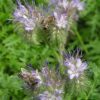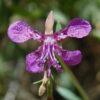Article-at-a-Glance
- Plant therapy can offer a natural way to alleviate pain, anxiety, and inflammation in pets post-surgery.
- Herbs like basil and parsley have beneficial properties that can support your pet’s healing process.
- It’s crucial to select safe plants and administer the correct dosages for effective therapy.
- Integrating medicinal plants into a pet’s diet and environment can promote overall well-being.
- Veterinary consultation is essential before starting any plant-based treatment for your pet.

“12 Best Medicinal Plants | an attempt …” from www.flickr.com and used with no modifications.
Note: Nettle may be slightly toxic to pets. The photo above is an example of medicinal herbs not an endorsement of which ones are completely pet-safe. However, our initial research indicates that most of the ones featured above are except for nettle
Natural Healing: Plant-Based Aftercare for Your Pet
When your furry friend undergoes surgery, it’s not just the physical wounds that need healing. The stress of the experience can linger, manifesting as pain, anxiety, or inflammation. That’s where the gentle power of plant therapy comes into play. It’s a way to provide comfort and speed up recovery using the healing properties of nature.
The Role of Plants in Post-Surgery Recovery for Pets
Plants have been used for centuries to heal and soothe. They contain compounds that can act as natural remedies, supporting the body’s healing processes. For pets recovering from surgery, certain plants can help reduce inflammation, calm anxious behaviors, and mitigate pain without the side effects often associated with conventional medication.
Why Choose Plant Therapy for Your Dog or Cat?
Opting for plant therapy is choosing a path of holistic healing. It’s about integrating natural elements into your pet’s recovery plan to provide a balanced approach to their health. Besides that, plant therapy can be a cost-effective and gentle alternative, supporting your pet’s recovery in a way that aligns with nature’s rhythms.
Soothing Greens: Selecting the Right Plants
Selecting the right plants for your pet’s post-surgery care is paramount. Not all plants are safe for pets, and some can be toxic. Therefore, it’s essential to do your research or consult with a vet who is knowledgeable about holistic pet care. Let’s delve into some safe and beneficial plants for both dogs and cats.
Safe Herbs for Canine Post-Surgery Care
Dogs can benefit from a variety of herbs that are known for their healing properties. Here are some safe options:
- Basil: This herb is known for its anti-inflammatory properties, which can be helpful for reducing swelling and pain.
- Parsley: Rich in vitamins and minerals, parsley can act as a diuretic, which helps to flush out toxins.
- Lavender: Known for its calming effects, lavender can help soothe post-surgery anxiety.
Remember, moderation is key. Even with safe herbs, it’s important to use them in the right amounts to avoid any adverse effects.
Example: A golden retriever named Max had recently undergone surgery. His owner introduced a small amount of chopped basil in his diet, which helped reduce the swelling around his incision site.
Beneficial Blooms for Feline Recovery
Cats are particularly sensitive to plants, but there are still several options that can aid their recovery when used appropriately:
- Valerian: Often used as a sleep aid in humans, valerian can help cats relax and rest after surgery.
- Catnip: While it can stimulate playfulness, in controlled amounts, catnip can also help cats relax.
- Chamomile: This gentle flower can soothe the digestive system and reduce anxiety.
As with dogs, it’s essential to introduce any new herb to your cat’s diet gradually and observe their reaction.
Dosage Guidelines for Post-Operative Care
When it comes to administering plant therapy to your pets, getting the dosage right is crucial. A small amount can be beneficial, but too much can be harmful. Start with the smallest recommended dose and watch for any adverse reactions. If in doubt, consult with a holistic veterinarian who can provide guidance based on your pet’s specific needs and condition.
Understanding the Healing Properties of Plants
Plants possess a variety of healing properties that can be harnessed to aid in your pet’s recovery. Anti-inflammatory herbs can reduce swelling, while others can help manage pain or ease anxiety. Understanding which plants offer which benefits is the first step in creating an effective plant therapy regimen for your pet.
Natural Anti-Inflammatory Options for Pets
After surgery, it’s common for pets to experience inflammation. Incorporating natural anti-inflammatories into their diet can provide relief. Here are a few options:
- Turmeric: Contains curcumin, which is known for its potent anti-inflammatory effects.
- Ginger: Helps to soothe the stomach and reduce inflammation.
- Omega-3 Fatty Acids: Found in fish oil, these can reduce inflammation throughout the body.
These natural remedies can be added to your pet’s meals in appropriate doses to help reduce post-surgical inflammation.
Herbs That Help Alleviate Pet Anxiety and Pain
Post-surgery, pets may feel anxious or in pain. Certain herbs can provide comfort during this stressful time. Consider the following:
- St. John’s Wort: Known for its mood-stabilizing effects, it can help with pain and anxiety.
- Skullcap: Helps to ease nervous tension and promote calmness.
These herbs can be given as teas, tinctures, or added to food, but always under the guidance of a professional.
Integrating Plant Therapy into Your Pet’s Lifestyle
Plant therapy isn’t just a one-time treatment; it’s a lifestyle change that can improve your pet’s overall well-being. Let’s explore how to make it a regular part of their routine.
Incorporating Medicinal Plants into Regular Diets
Many medicinal plants can be easily added to your pet’s diet. For example, a sprinkle of ground turmeric on their food can provide anti-inflammatory benefits, while a chamomile tea can be poured over their meal to help with relaxation. The key is consistency and ensuring that these additions are suitable for your pet’s specific health condition.
Creating a Healing Environment at Home
Healing goes beyond what we ingest; our environment plays a big role too. Creating a calming space for your pet can support their recovery. This might include a comfortable bed, a quiet room, and even diffusing pet-safe essential oils like lavender for relaxation.
Pet Owners’ Experiences with Plant Therapy
The proof is in the pudding, or in this case, the pet food. Pet owners who have used plant therapy as part of their pet’s post-surgery care often report positive results. Their stories highlight the benefits of natural remedies in the healing process.
Success Stories: Pets and Plant-Based Recovery
Take, for example, a border collie named Bella who recovered from knee surgery with the help of plant therapy. Her owner added a vet-recommended dose of turmeric to her diet, which significantly reduced her inflammation and aided in her recovery. Bella’s story is just one of many that showcase the potential of plants to help our pets heal naturally.
Another case is that of a cat named Oliver who struggled with post-surgery anxiety. His owner introduced a small catnip plant into his environment, which he could sniff and chew at his leisure. This simple addition helped to calm his nerves and made his recovery period much smoother.
- Plant therapy can offer a natural way to alleviate pain, anxiety, and inflammation in pets post-surgery.
- Herbs like basil and parsley have beneficial properties that can support your pet’s healing process.
- It’s crucial to select safe plants and administer the correct dosages for effective therapy.
- Integrating medicinal plants into a pet’s diet and environment can promote overall well-being.
- Veterinary consultation is essential before starting any plant-based treatment for your pet.
Integrating Plant Therapy into Your Pet’s Lifestyle
Plant therapy isn’t just a one-time treatment; it’s a lifestyle change that can improve your pet’s overall well-being. Let’s explore how to make it a regular part of their routine.
Incorporating Medicinal Plants into Regular Diets
Many medicinal plants can be easily added to your pet’s diet. For example, a sprinkle of ground turmeric on their food can provide anti-inflammatory benefits, while a chamomile tea can be poured over their meal to help with relaxation. The key is consistency and ensuring that these additions are suitable for your pet’s specific health condition.
Creating a Healing Environment at Home
Healing goes beyond what we ingest; our environment plays a big role too. Creating a calming space for your pet can support their recovery. This might include a comfortable bed, a quiet room, and even diffusing pet-safe essential oils like lavender for relaxation.
What Veterinary Science Says About Plant Therapy
As we turn to nature for healing, it’s essential to consider what veterinary science has to say. Research in veterinary medicine supports the use of certain plants for their therapeutic properties. For instance, studies have shown that omega-3 fatty acids can help reduce inflammation in pets, while herbs like chamomile and lavender are recognized for their calming effects. It’s a testament to the power of plant therapy when used responsibly and under professional guidance.
Frequently Asked Questions (FAQ)
How Soon After Surgery Can I Start Plant Therapy for My Pet?
It’s best to wait until your pet is stable and any incisions have begun to heal. This usually means waiting a few days post-surgery before introducing plant therapy. Always consult with your vet before starting any new treatment.
What Are Some Signs That My Pet Is Benefiting from Plant Therapy?
Signs that your pet is benefiting from plant therapy include a noticeable reduction in swelling, less anxiety, and a more relaxed demeanor. You might also observe an improvement in their appetite and sleep patterns. Keep a close eye on your pet’s behavior and consult with your vet if you’re unsure.
Are There Any Plants That Should Be Avoided Post-Surgery?
Yes, certain plants can be toxic to pets or interfere with their recovery. For example, onions, garlic, and grapes are harmful to dogs, while lilies and poinsettias can be toxic to cats. Always research and verify the safety of any plant with your vet before offering it to your pet.
Can I Combine Plant Therapy with Traditional Medication?
Often, plant therapy can complement traditional medication, but it’s important to consult with your vet. They will advise you on any potential interactions and help you create a safe, integrated treatment plan.





